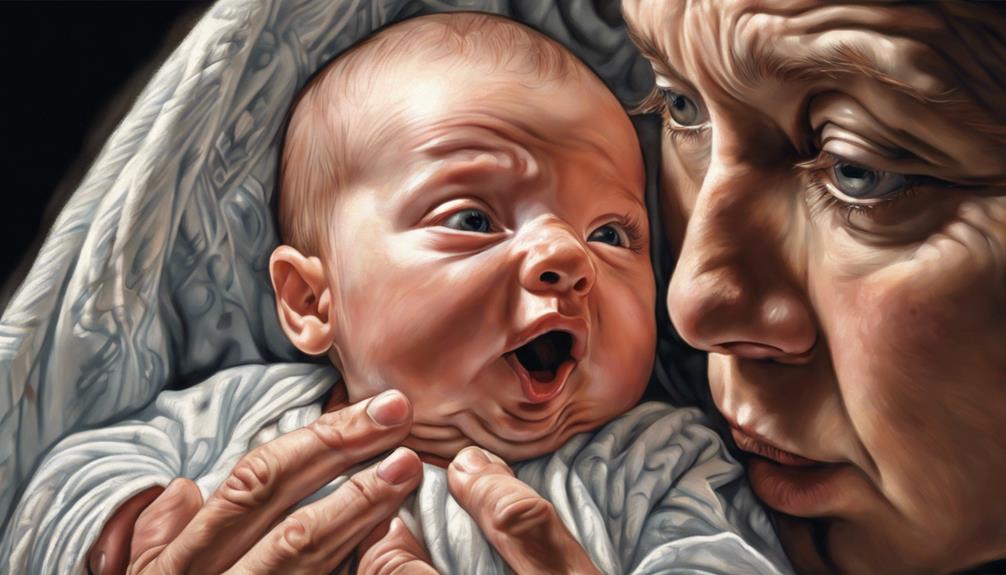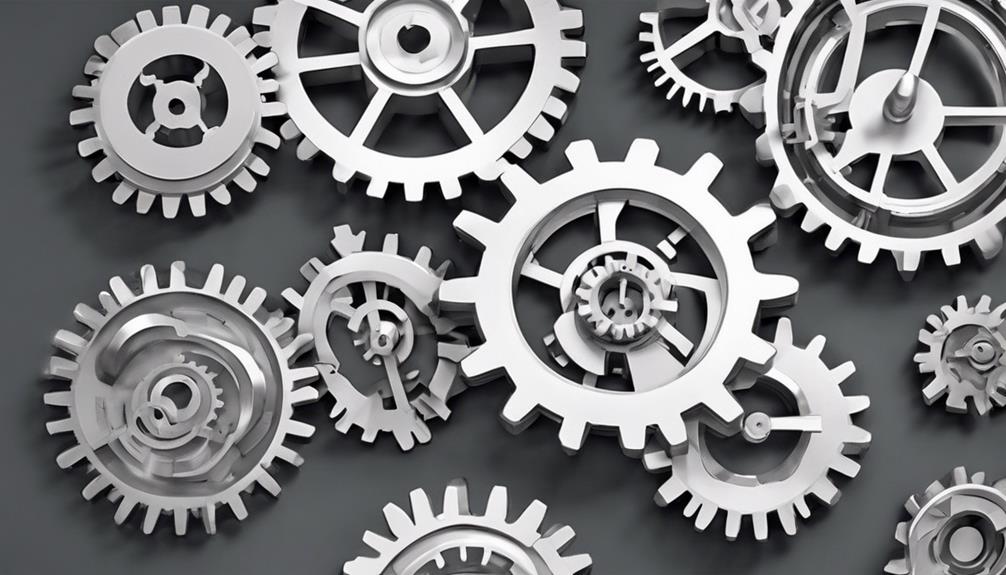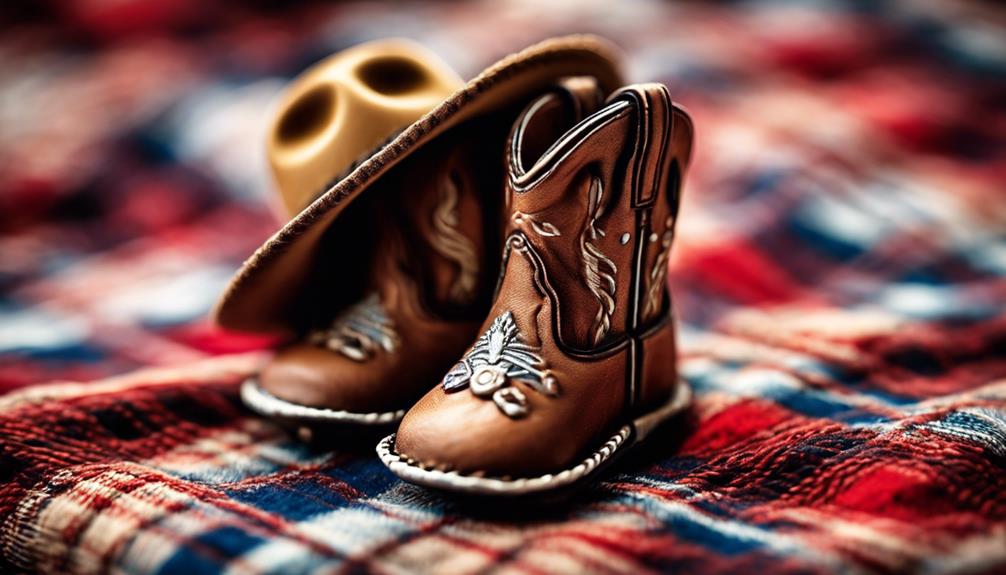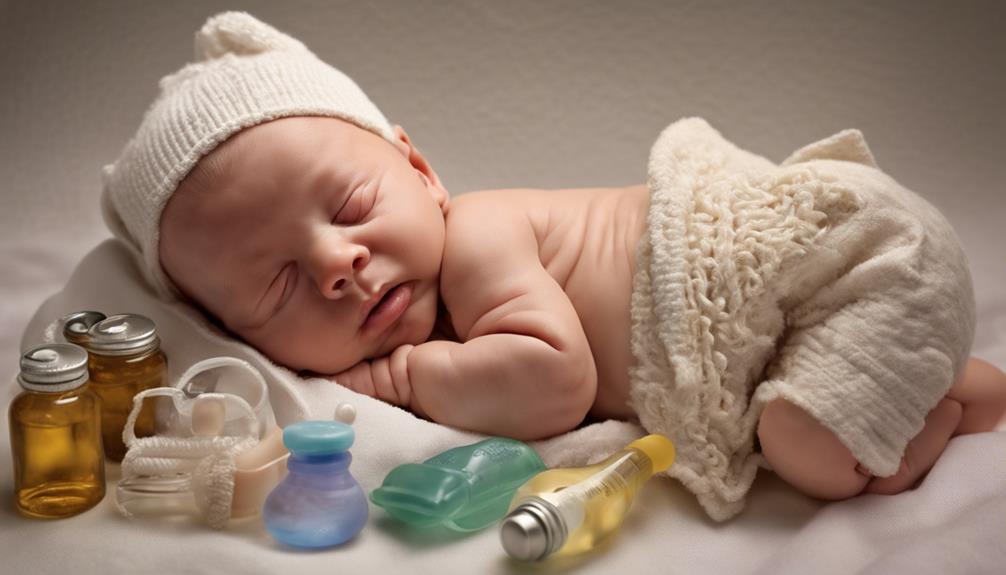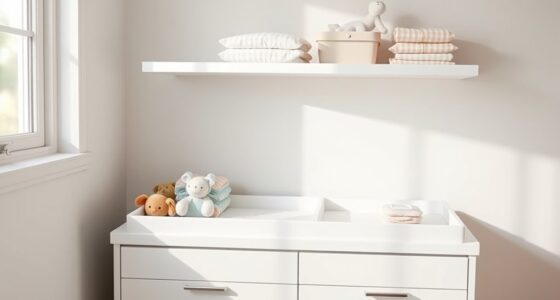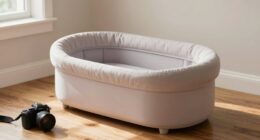If you've ever wondered why your newborn seems to hiccup so frequently, you're not alone. Those tiny, repetitive contractions can be puzzling for parents, but understanding the reasons behind them is key to providing comfort for your baby.
In this guide, we'll explore the common triggers of newborn hiccups, debunk some myths surrounding them, and equip you with practical strategies to ease your little one's discomfort.
Stay tuned to uncover the secrets behind your baby's adorable yet persistent hiccups.
Key Takeaways
- Newborn hiccups stem from diaphragm contractions and feeding triggers.
- Remedies include burping, pacifiers, and gripe water for relief.
- Prevention involves proper feeding techniques and frequent burping.
- Healthcare consultation is advised for persistent or distressing hiccups.

Comfy Cubs Muslin Burp Cloths 20" x 10", Pack of 10 – Large, 6-Layer, Ultra Absorbent 100% Cotton for Baby Drool and Messes – Soft, Safe & Gentle Baby Burp Cloths for Boys & Girls – Multi
Soft and Gentle Baby Burp Cloths: Made from 100% breathable muslin cotton, these burping cloths are lightweight, gentle,…
As an affiliate, we earn on qualifying purchases.
As an affiliate, we earn on qualifying purchases.
Common Causes of Newborn Hiccups
If your newborn is experiencing hiccups, it's important to understand the common causes that may be contributing to this phenomenon.
Baby hiccups in newborns often occur due to the diaphragm contracting and the vocal cords closing rapidly. One common trigger is feeding – whether it's too quickly, too much, or if there's irritation during feeding.
Placing your baby in an upright position during and after feeding might help reduce the occurrence of hiccups by aiding in digestion and preventing stomach contents from flowing back up into the esophagus.
Additionally, factors like excitement or sudden changes in temperature can also lead to hiccups in your little one. Remember, hiccups in newborns are usually harmless and tend to resolve on their own.

Philips Avent Soothie Baby Pacifiers – 100% Silicone Pacifiers for Babies 0-3 Months, One-Piece Design, BPA-Free, Extra Durable, Green, 4 Pack, Model SCF190/41
Newborn pacifier 0-3 months supporting baby’s natural suckling need: designed to fulfill newborns' natural suckling reflex to self-soothe…
As an affiliate, we earn on qualifying purchases.
As an affiliate, we earn on qualifying purchases.
Effective Remedies for Baby Hiccups

When seeking remedies for your baby's hiccups, consider simple techniques like burping during and after feedings to help release gas bubbles and provide relief. Offering a pacifier or something for the baby to suck on can also relax the diaphragm and potentially stop hiccups. Gripe water drops may be a consideration, but it's important to consult with a pediatrician first. Remember, as babies grow, the frequency of hiccups tends to decrease naturally, indicating a normal resolution over time. Allowing hiccups to pass on their own is a valid approach since they are typically harmless and part of normal development.
| Remedies for Baby Hiccups | Benefits | Considerations |
|---|---|---|
| Burping | Releases gas bubbles | During and after feeds |
| Pacifier/sucking | Relaxes diaphragm | Monitor baby's response |
| Gripe water drops | Potential relief | Consult pediatrician |
These remedies offer simple ways to help your baby get rid of hiccups at home. Remember to always consider your baby's well-being and consult with medical professionals when needed.

Mommy's Bliss Gripe Water Original, Infant Gas & Colic Relief, Gripe Water for Babies, Gentle & Safe, 2 Weeks+, 4 Fl Oz (Pack of 1)
MOMMY'S BLISS ORIGINAL GRIPE WATER: Mommy's Bliss Gripe Water is the bestselling supplement for infant gas and colic…
As an affiliate, we earn on qualifying purchases.
As an affiliate, we earn on qualifying purchases.
Preventing Hiccups in Newborns
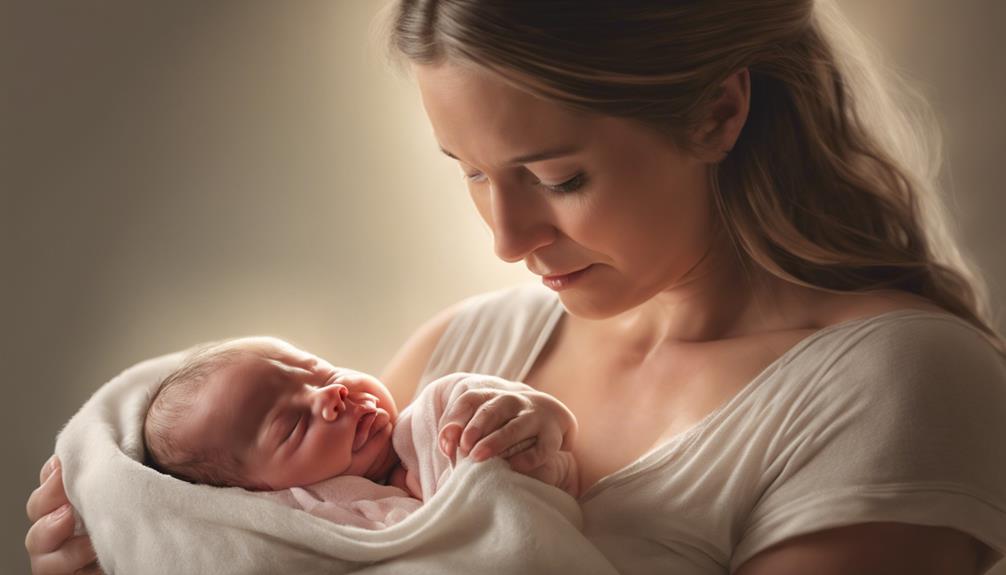
To prevent hiccups in newborns, make sure to burp your baby frequently during and after feedings. This helps release gas and reduces the likelihood of discomfort.
Feeding your newborn smaller amounts more frequently can prevent overfeeding and stomach distention, which are common triggers for hiccups. Holding your baby upright after feeding aids in digestion and minimizes the chances of hiccups occurring.
Ensuring proper bottle feeding techniques, nipple size, and a good breastfeeding latch can also help prevent your baby from swallowing excess air, which can lead to hiccups. It's important to avoid overfeeding and fast feeding practices as they can contribute to hiccups in your little one.

NUK Perfect Match 2-in-1 Natural and Anti-Colic Bottle with Slow Flow, Wide, Adaptable Nipple, 5oz., 2 Pack
CLOSEST TO MOM – Designed to closely mimic the breastfeeding experience, helping maintain the natural bond between mom…
As an affiliate, we earn on qualifying purchases.
As an affiliate, we earn on qualifying purchases.
Consulting a Healthcare Professional

Consult with a healthcare professional if your newborn's hiccups persist for an extended period. When it comes to your baby's well-being, seeking guidance from a healthcare professional can offer assurance and support. Here are some key reasons why consulting a doctor is important:
- Frequency and Duration: If your baby's hiccups seem to be happening very frequently or lasting for an unusually long time, a pediatrician can provide insights into what may be causing this and offer strategies to help.
- Distress: If your newborn appears to be distressed or uncomfortable during hiccups, a healthcare professional can assess the situation and recommend appropriate measures to alleviate any discomfort.
- Expert Advice: Pediatricians have the expertise to address any concerns you may have about your newborn's hiccups, offering tailored advice and solutions based on your baby's unique needs.
- Monitoring and Care: Regular check-ups with a healthcare professional can assure that your baby's hiccups are being monitored effectively, and any necessary actions are taken promptly to maintain their overall well-being. Remember, your pediatrician is there to support you and your baby through every step of this journey.
Managing Hiccups During Sleep

Managing hiccups during your newborn's sleep involves understanding common causes and implementing gentle strategies to help alleviate discomfort. Newborns may experience hiccups during sleep due to normal reflex activity. If your baby hiccups while sleeping, try offering a pacifier or gently adjusting their position to ease the hiccups. It's typical for newborns to hiccup during sleep, and it usually doesn't disturb their rest.
Ensuring your baby is in a comfortable sleep environment can also aid in managing hiccups during sleep. Observing your baby's behavior and making sure they're safe and comfortable while sleeping is crucial when hiccups occur. Remember to keep an eye on your baby's position, as slight adjustments can sometimes help alleviate hiccups.
Frequently Asked Questions
Why Does My Newborn Get Hiccups so Much?
Your newborn gets hiccups frequently due to their developing diaphragm and nerve control. Factors like swallowing air or overeating can trigger them. Hiccups usually decrease as your baby grows and are normal and harmless.
Is It OK to Lay Baby Down With Hiccups?
It's generally safe to lay your baby down with hiccups. If they're comfortable, it's okay. But if hiccups persist and cause distress, consult a pediatrician. Trust your parental instincts and seek help when needed.
Should I Ignore Newborn Hiccups?
You should generally feel at ease to ignore your newborn's hiccups. They're usually harmless and part of normal development. If persistent or causing discomfort, seek advice. Keep an eye on to make sure they don't disrupt feeding or sleep.
Do Hiccups Mean Baby Is in Distress?
Hiccups in newborns don't necessarily signal distress. They're usually a normal part of development. Most babies get them often, showcasing a healthy nervous system. Watch for other signs of concern like feeding issues and consult a healthcare provider if needed.
Conclusion
As you navigate the unpredictable journey of parenthood, remember that your newborn's hiccups are just a gentle hiccup in the symphony of their growth.
Like a fleeting melody in a beautiful sonata, these hiccups will pass, leaving behind the sweet harmony of your bond.
Embrace each hiccup with patience and understanding, knowing that you're equipped with the knowledge and love to guide your little one through every rhythm of life.
